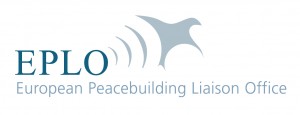Starting with the story — Covering the politics of peace and conflict in Latin America and the Caribbean
What we know is what we see, what we hear and what we read, so when it comes to responding to violent conflict, how the conflict is portrayed can be the difference between grasping and overlooking opportunities to prevent violence.

International Crisis Group was founded in 1995 to get the right analysis into the right hands at the right time to try to prevent impending conflict. The challenge is not necessarily that analysis is difficult to find. There are numerous types of analysis being penned by security officers, academics, journalists and (geo)political pundits. The difficulty lies in finding analysis that provides the kind of depth and nuance that does justice to the complexity of a conflict. In other words, analysis that does not start and end with developments happening in a capital or the centres of economic and political power. A Crisis Group report can take 5–6 months of investigation, research, networking, travel, interviews, writing and editing to produce. All this requires a wide network of analysts, living and working in 29 countries all over the world.
Over the course of 15 years, Crisis Group in Latin America and the Caribbean has produced 36 reports and briefings, 91 op-eds and commentaries, and organised/held over 500 advocacy meetings on Colombia, with stakeholders from the Colombian government to the rebel Revolutionary Armed Forces of Colombia (FARC). Its work has won praise from politicians such as the, former Vice President of Colombia, Angelino Garzón, and the current President, Iván Duque Márquez. On his first official visit to Europe, President Marquez had a meeting with Crisis Group to discuss the FARC, negotiations with the rebel National Liberation Army (ELN), and regional challenges. He recognised that the organisation had made “important contributions to address the peace process and the Venezuelan crisis”.
“No intelligence analyst, no journalist is able to do this,” says Ivan Briscoe, Program Director for the Latin America and Caribbean region.
Readers expecting a straightforward story of two countries, two political opponents or two communities battling it out will be disappointed. Instead, Crisis Group’s analysis of violence and instability in the region paints a picture of conflict in all its complexity. It weaves together problems such as, misguided deportation strategies, a militarised style of policing that undermines public confidence, economically-neglected neighbourhoods, and a political preference for being seen as ‘tough’ rather than effective on gang violence. Not settling for the easiest narrative of a conflict has become part of its trademark and the popularity of its reports contradicts the idea that all analysis and policy advice has to be simplified and bite-sized.
Covering conflict events and developments for Latin America and the Caribbean comes with the extra challenge of overcoming outdated stereotypes about conflict. Conflicts in this region vary significantly and do not fit the front page narrative of ‘war’ that is fixed in the public imagination.
“It’s not the traditional interstate violence that most people are familiar with. It’s fragmented, complicated, highly criminalised, and inextricably linked with illicit revenues,” observes Briscoe. “It confuses people. You have a situation where, on the one hand, Acapulco is one of the most violent cities in Mexico and, on the other, it is also a popular tourist destination.”
Criminal gangs in Latin America and the Caribbean are adept at keeping the violence sufficiently low-key to stay out of international headlines while still creating a climate of constant violence and insecurity that shapes politics and people’s daily lives. Those outside the region would be surprised that more people have been murdered in the small Central American country of El Salvador in the last four years than have died in the conflicts in Libya over the same period.
Crisis Group’s analysts see themselves as producers of public goods with a responsibility to their contacts and their readers. “We don’t just do a report and then move on; we have to stay engaged” says Briscoe. In June, Crisis Group brought together all the victims groups operating in the state of Veracruz, Mexico to discuss how the state and foreign donors could respond more effectively to their needs. There were 16 groups around the table; families of those who’ve been disappeared, people who spend their weekends searching clandestine grave sites to try to find their loved ones. For the team, it was a labour of love.
The fact that the organisation is supported through a mix of government and private donations allows its analysts to invest in relationships like these and to place independence over pleasing clients. For national and international decision-makers, a detailed analysis of the conflict stakeholders, relationships and trajectories that is not driven by mainstream media attention or by one country’s foreign policy interests is invaluable. Diverse funding and a model of partnerships with organisations such as the EU make it easier to connect with policymakers and representatives in countries and in capitals. Those partnerships build the trust and create the openings that enable Crisis Group analysts to put forward viable policy solutions.
Pursuing context, history, and multiple sides of the story is more than just good analysis. It can also reduce the risk of reductive responses to conflict and encourage a more sophisticated blend of preventive engagement.
And, while Crisis Group might be best known for its reports, it is not all about analysis. In Briscoe’s words, “It’s our way of trying to prevent human suffering and loss of life.”
—-
Interviews and article by Terri Beswick.
